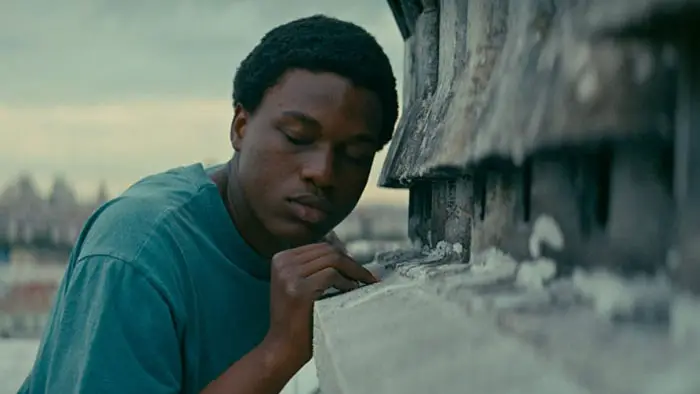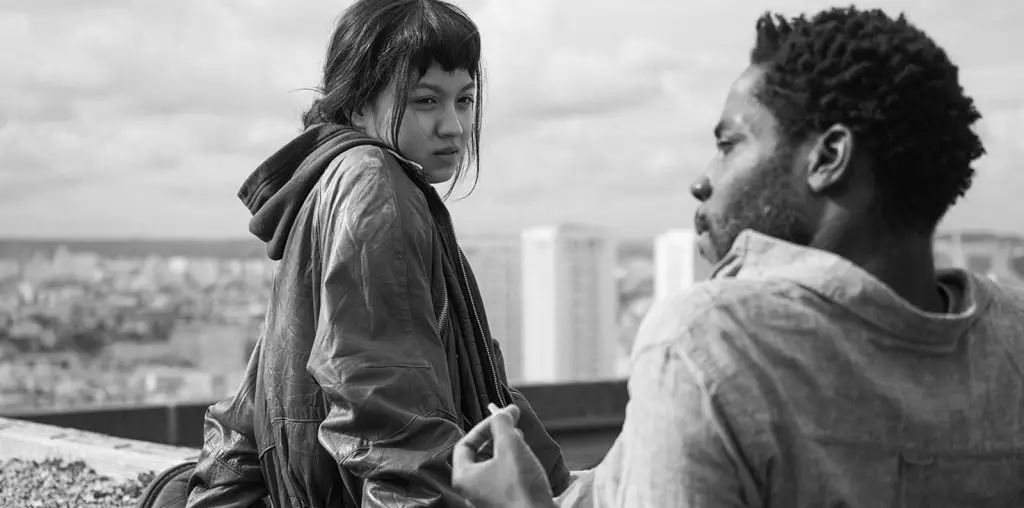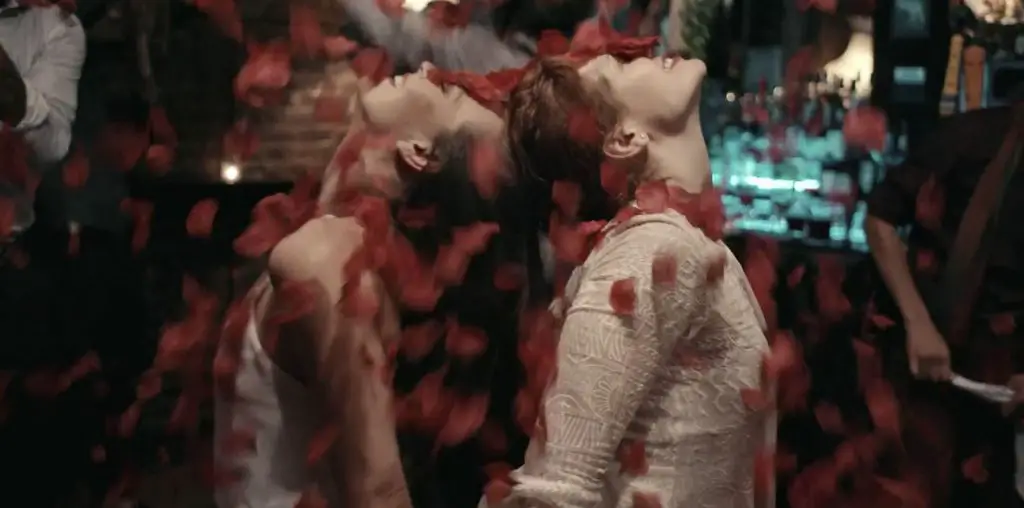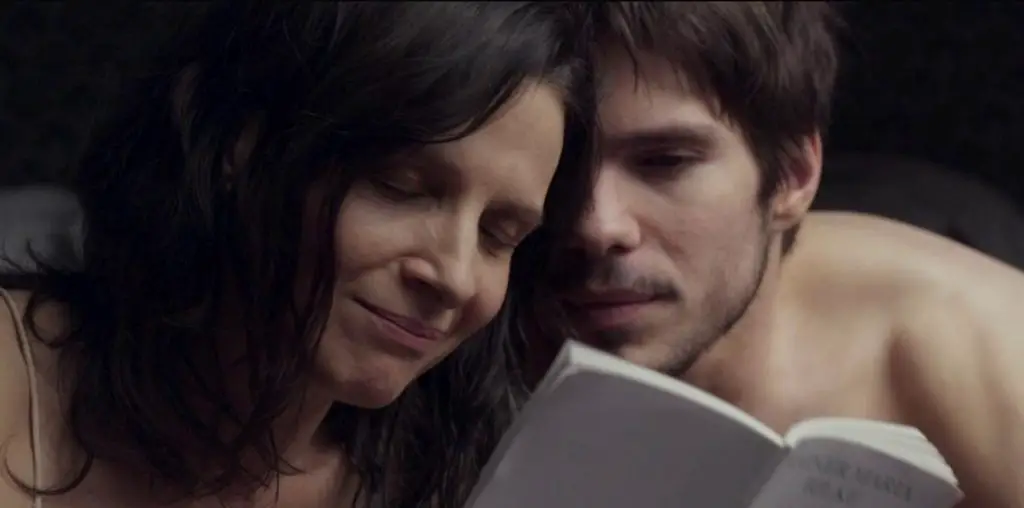
NEW TO THEATERS! In Fanny Liatard and Jérémy Trouilh’s sociopolitical, coming-of-age drama, Gagarine, the main character likens his titular hometown to “celestial suburbs.” “In space,” he states, “it’s the suburban area around the stars. They shine less, but stars don’t survive otherwise.” He is so intrinsically connected to the small, lower-class suburban city that birthed him (and his dreams of space) that even when threatened with demolition, he resolutely stays in place. Now that’s commitment. Commitment is also what powers the co-directors through narrative stumbles. They take a massive leap of faith, especially in the third act. For the most part, it pays off.
Said character is the young Youri (Alseni Bathily), who does everything he can to save his home from destructive authoritarian forces. He fixes lights and broken elevators, and barters with the local junkyard owner, Gérard (Dennis Lavant). Alas, upon inspection, too many flaws are discovered in his apartment building, and all the residents are given an eviction notice of six months.
Cruelly abandoned by his mother, Youri refuses to leave. Instead, inspired by his hero – Russian cosmonaut Yuri Gagarin, who once visited the town, imbuing it with a sense of hope – he builds himself a cubby hole that resembles a spaceship cabin. With everyone gone and the proverbial wrecking ball swinging closer and closer, Youri lives alone, sustaining himself on his little garden, all Mark Watney-like. His friends come and go from his place casually, as Youri falls for Diana (Lyna Khoudri), a kindred free spirit who likes to climb construction cranes and run away from her family.

“…upon inspection, too many flaws are discovered in his apartment building, and all the residents are given an eviction notice of six months.”
Unabashedly romantic, Gagarine demands that you go along with its heart-on-the-sleeve sentiments and blatant metaphors. Like its hero, the suburb once held dreams and aspirations and is now reduced to dust. Cinematographer Victor Seguin fills the screen with geometrical shots of the blocky buildings, beautifully conveying the decaying warmth and nostalgia, which haunts Cité Gagarine like a benign apparition.
Diana and Yuri communicate via lights and Morse code. They cuddle next to his “star wall,” waxing poetic about space. Youri overcomes his fears of heights by following Diana up a crane, blindfolded, until the magnificence and desolation of his city are revealed to him. Youri achieves weightlessness and floats through his beloved building prior to donning a faux-spacesuit. If all this earnestness sounds glorious to you, put this film high on your list.
Gagarine is an allegory, a love story – between two people, as well as between a person and his birthplace – a lyrical ode to the aforementioned “celestial burbs,” and an examination of shattered dreams. Invariably, the film doesn’t quite live up to the loftiness of its ambition. However, like its Russian hero, it aims for the stars and at times reaches exhilarating moments of weightlessness.

"…reaches exhilarating moments of weightlessness."


